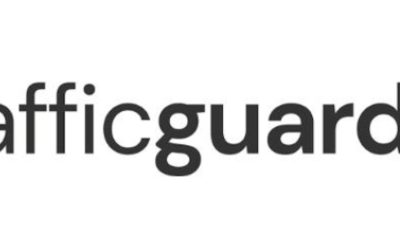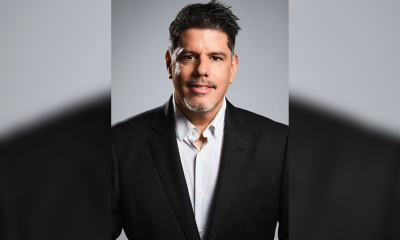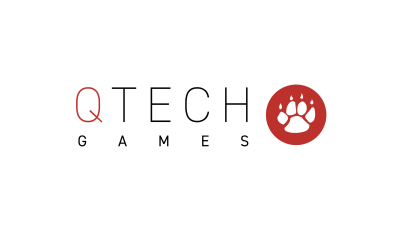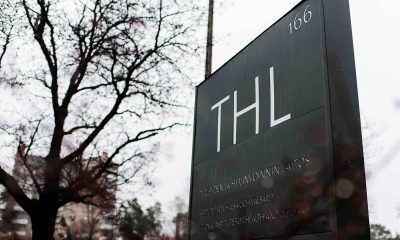DraftKings
Jamie Shea Urges United States Betting Brands to Embrace Player Education

Strive Gaming Chief Marketing Officer tells Xtremepush podcast Experts in the Room in-play betting has the potential to take off as it has in Europe
Sportsbooks in the United States must focus on educating bettors about the availability and benefits of in-play betting for a profitable future, according to Strive Gaming’s Chief Marketing Officer, Jamie Shea (pictured).
Speaking as a guest on a forthcoming edition of Xtremepush’s podcast series Experts in the Room, the industry leader and former VP of Sportsbook at DraftKings stressed that live betting has so far only reached a fraction of its potential in the country.
That’s despite it being more than five years since the first legal online bets in the United States outside of Nevada were placed with DraftKings in New Jersey.
Also key to profitability is a concerted push to retain expensively acquired players, Shea argues, with increased personalisation favored above expensive blanket bonusing.
“The education of the player is the best retention tool as it teaches them how to play,” said Shea, speaking to Xtremepush’s New Business Account Executive and podcast host, Will Hansen. “A lot of the time, customers just don’t even realize that certain bets exist. One of the things that’s driving me crazy right now in the United States industry is in-play. Why is that not bigger? Seventy per cent of bets should be in-play, as they are in Europe, because it’s fun and provides instant gratification.
“I would love to see that happen in the United States. We need to educate the players on how it works and where they can find it in an app and that’s where push notifications come in. Brands should be doing all they can to let the customer know that hey, there is this wager available and it’s a lot of fun. Every time that I’ve sat down with people and taught them how it works, they love it and it becomes their go-to.”
Shea also stressed that United States operators’ acquisition budgets need to be more in line with player lifetime values, a trend which is already in motion.
“After the first bet on August 1st, 2018, in New Jersey, it was a free-for-all,” she added. “Nobody knew what should be done or how it should be done, just that they wanted as many active customers as possible. And so it was a bonus here, a bonus there.
“Unfortunately, as everybody came to realize, this set the customer up with an expectation that isn’t realistic, because those offers can’t last forever. It also created a lot of promiscuity within the different brands through ‘promo hunters’ and it started to become a race to the bottom. Nobody was profitable.
“Having Strive Gaming and Xtremepush in the United States market allows for so much more targeted marketing, so that bonuses aren’t just thrown at everyone. It allows us to look at what resonates with certain player types as a targeted and measured approach.”
In line with the data-led approach to personalized offerings, Shea also stressed that detecting problematic player behavior is of paramount importance for United States-focused platform provider Strive Gaming.
“For me, it’s a very personal topic,” she said. “I grew up with my dad losing his business and that’s because gaming was not regulated. Nobody was texting him and asking him how he was doing back in 1984. One of the great things about having all of this data available is you can look to see, has someone changed their behavior dramatically?
“I’m very cognizant of player interactions with us. Our customer service team is extremely well-trained to notice when certain trigger words, for example, suggest a person might be having a problem. We can’t be their therapist. We can’t know everything they are thinking. But what we can do is provide the right tools to enable people to keep enjoying sports betting and iGaming, in a very responsible manner that isn’t going to affect their lives.”
DraftKings
PGA TOUR, DraftKings, ESPN launch PGA TOUR LIVE Betcast, the first all-day, watch-and-bet experience for golf fans
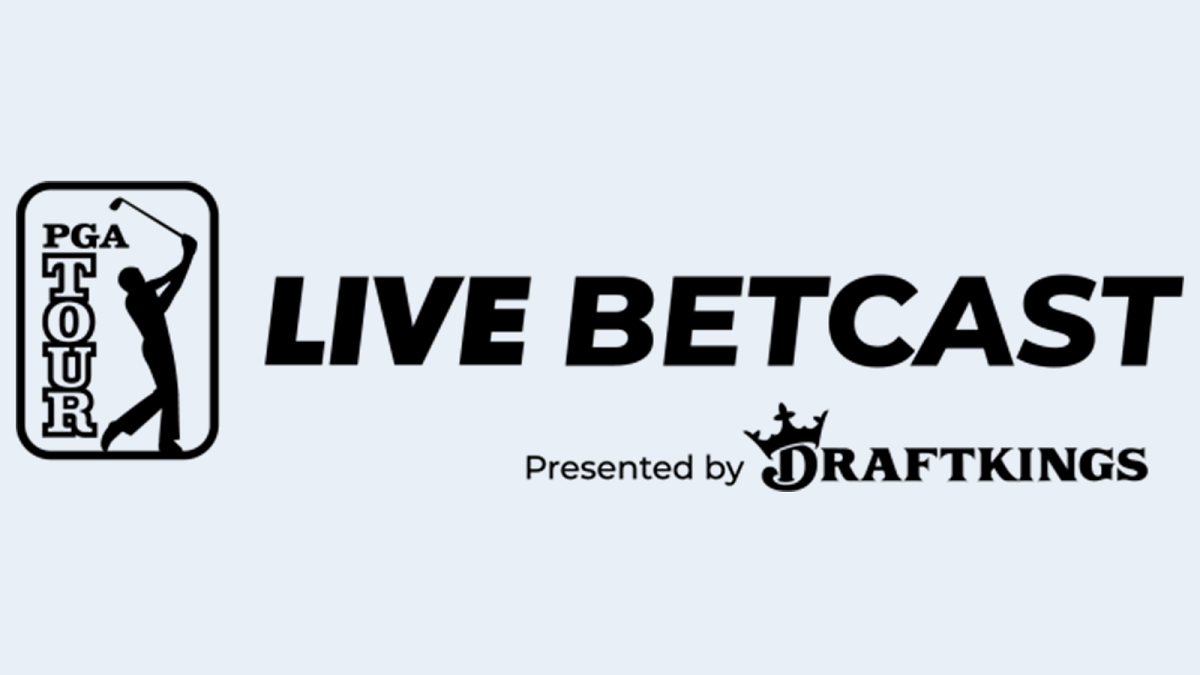
A new era has arrived for golf bettors, as the PGA TOUR and ESPN are doubling sports betting coverage for the 2026 PGA TOUR Season with a first-of-its-kind watch-and-bet experience from sunup to sundown.
PGA TOUR LIVE Betcast presented by DraftKings will air on ESPN during 12 marquee PGA TOUR events throughout the year, beginning with this week’s WM Phoenix Open, Feb. 5-8 at TPC Scottsdale.
The Betcast at each event will air more than eight hours during each of the four days of play on the ESPN App, alongside the Main Feed, Featured Group and Featured Hole streams. With more than 400 hours in total across the 2026 PGA TOUR Season, the Betcast will feature golf-related betting discussion, live betting analysis, upcoming previews, tournament features (tournament winner, matchups, etc.) and more.
PGA TOUR LIVE Betcast, which debuted in the 2025 season with 50 hours of coverage across six events, is now presented by DraftKings. The expanded coverage brings fans interested in betting content more of the coverage they’re looking for, complete with detailed insights and informed analysis.
Jonathan Coachman will serve as host, joined by Matt Every and Michael Collins as the show’s analysts. Graham DeLaet, Jeff Eisenband, Steve Scott and Kevin Sylvester will offer additional hosting and analyst support, while Rick Gehman will contribute across the betting feeds throughout the season. Additional talent pending on a tournament-by-tournament basis.
Set to premiere this Thursday, Feb. 5, with the first round of the WM Phoenix Open, the Betcast will be available to fans throughout the 2026 PGA TOUR Season, continuing with The Genesis Invitational at The Riviera Country Club in Pacific Palisades and concluding with the season-ending TOUR Championship at East Lake Golf Club.
Scott Warfield, PGA TOUR Vice President, Gaming, said, “The PGA TOUR is pleased to present more than 400 hours of live betting coverage in 2026 alongside our collaborators at ESPN and DraftKings. Building on the success of last year’s feed, we are excited to further expand this season with the support of DraftKings and its world-class golf product, as fans will have a host of new betting markets and storylines to follow as they watch along with the broadcast.”
“Our collaboration with the PGA TOUR and ESPN reflects a shared, forward-looking approach to fan engagement,” said Stephanie Sherman, Chief Marketing Officer, DraftKings. “For those who see betting as part of their entertainment experience, by integrating our industry-leading golf offerings into PGA TOUR LIVE Betcast, we’re creating a more immersive, real-time way to follow the action from the first tee shot to the final putt, while fostering a sense of connection and community around the sport.”
Said John Suchenski, Sr. Director, Programming & Acquisitions at ESPN: “At ESPN, we want to provide fans with more access, insight and ways to connect with sports. The Betcast gives fans another option to engage with PGA TOUR LIVE and be an attraction to those who desire alternative ways to traditional feeds. We’re always discussing new and innovative approaches to golf coverage with the PGA TOUR, and these shows are the newest evolution of those efforts.”
DraftKings, ESPN and the PGA TOUR take responsible gaming seriously by promoting educational information and tools to help players enjoy sports betting responsibly. The DraftKings Sportsbook app offers consumers a number of responsible gaming tools, including My Stat Sheet, a gaming tool that gives players the ability to assess, track and interact with their personal gaming stats as well as limit setting, cool-off periods and self-exclusion.
The post PGA TOUR, DraftKings, ESPN launch PGA TOUR LIVE Betcast, the first all-day, watch-and-bet experience for golf fans appeared first on Americas iGaming & Sports Betting News.
American gambling industry
Gaming Americas Weekly Roundup – November 24-30

Reading Time: 2 minutes
Welcome to our weekly roundup of American gambling news again! Here, we are going through the weekly highlights of the American gambling industry which include the latest news and new partnerships. Read on and get updated.
Latest News
VGO Promo, a long-standing platform known for bridging the worlds of cryptocasinos, cryptocurrency exchanges and CSGO skins gaming, has announced a comprehensive expansion of its verification framework designed to bring transparency to online promotional offers. The updated system enhances how users evaluate bonuses across three intersecting ecosystems. Founded during the peak of the CSGO skins economy, VGO Promo originally provided referral codes for case opening websites and virtual item platforms. As the industry evolved towards blockchain based gaming, Bitcoingambling and crypto trading, VGO Promo expanded its scope to support modern platforms including Roobet, Stake, Rollbit, CSGORoll, Duelbits, Binance, OKX, ByBit, Bitget and various case opening services within the CSGO community. The updated verification framework applies a structured, cross industry methodology to help users navigate rapidly changing promotional conditions.
FanDuel has announced the launch of Pass The Leg, a first-of-its-kind in-app feature that transforms traditional parlay betting into a shared, social experience just in time for holiday gatherings. Pass The Leg allows customers to build a single group parlay collaboratively, with each participant adding their own leg before placing individual bets using their own funds. Designed to bring friends and family together around one of the biggest football days of the year whether near or far, the feature allows users to start or join a Group Build, invite others to contribute picks, and then add the completed parlay to their personal betslip. Each contributor can also take advantage of a dedicated Pass The Leg Profit Boost, amplifying the excitement and potential payout of the shared pick. Available exclusively for the three NFL games taking place on Thanksgiving Day, Pass The Leg marks the first true multi-user parlay-building experience offered by a major U.S. sportsbook operator.
Partnerships
The St. Louis Blues announced an agreement designating DraftKings an Official Sports Betting and Daily Fantasy Operator of the Blues. The announcement comes ahead of the launch of legal sports betting in Missouri scheduled for Dec. 1, 2025. DraftKings has been an Official Sports Betting, Daily Fantasy Sports and iGaming Partner of the National Hockey League since 2021. As part of the agreement, DraftKings will spotlight responsible gaming through a pregame, in-arena feature, encouraging fans to play responsibly, have fun and access DraftKings’ comprehensive suite of responsible gaming tools and resources. DraftKings will have rights to use St. Louis Blues intellectual property — including team trademarks and logos — across marketing and promotional materials. The collaboration will feature in-arena signage, brand integrations across television and radio and exclusive hospitality experiences throughout the season, all designed to elevate fan engagement at the Enterprise Centre and beyond.
Signature Systems Inc (SSI) has announced a new partnership with Yellow Dog Software. The integration connects Yellow Dog’s advanced inventory capabilities with SSI’s PDQ POS system, enabling operators to streamline operations, improve cost control and gain real-time visibility across their properties. The partnership was initiated to meet the inventory needs of Osage Casinos, a major name in tribal gaming. The integration, which went live in September, was first deployed to support convenience store reporting and ordering across the properties.
The post Gaming Americas Weekly Roundup – November 24-30 appeared first on European Gaming Industry News.
DraftKings
ESPN and DraftKings Enter Multi-Year Agreement
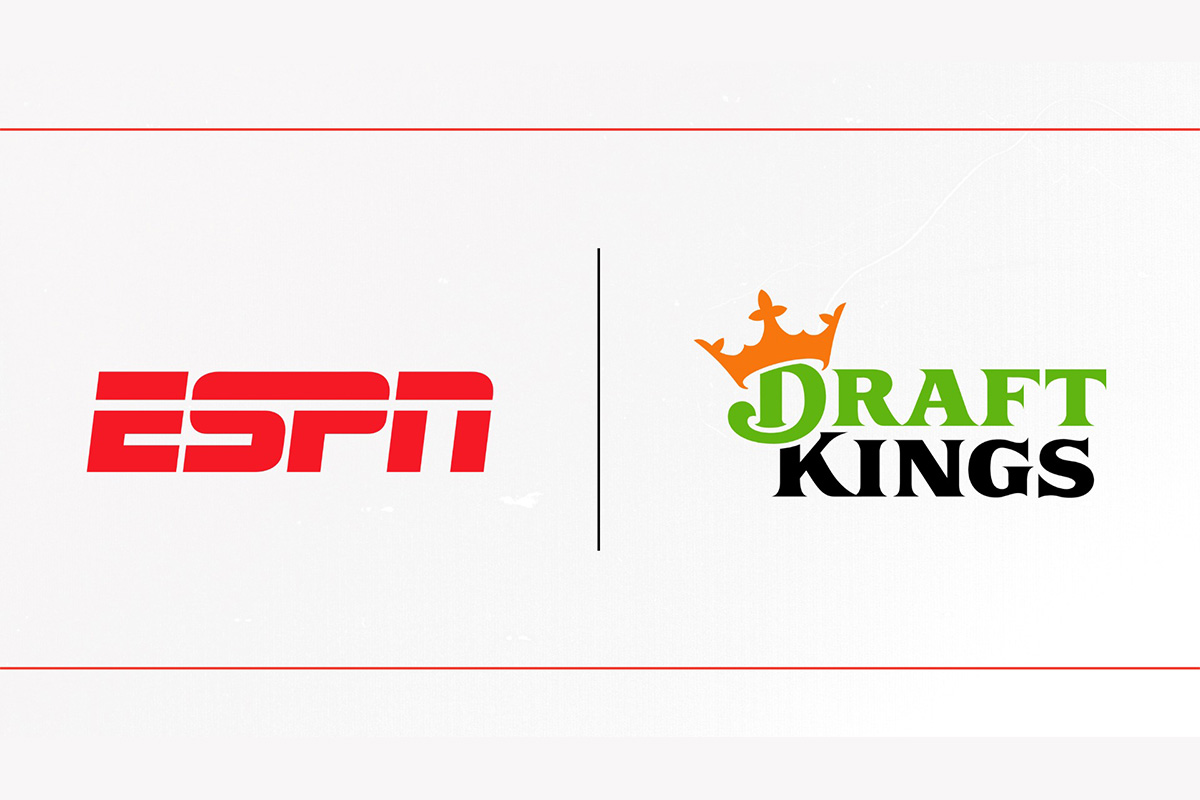
ESPN and DraftKings Inc. announced an agreement, naming DraftKings the exclusive Official Sportsbook and Odds Provider of ESPN, effective December 1, 2025. This agreement, which unites two of the most iconic brands in sports, will deliver fans premium sports betting content and experiences.
Beginning in December 2025, DraftKings entertainment products will be exclusively integrated across ESPN’s ecosystem with a full rollout expected in 2026. Fans will be able to enjoy betting features and access to offerings including DraftKings’ sportsbook, daily fantasy, and DraftKings Pick6 at launch.
Together, DraftKings and ESPN will collaborate to advance their shared commitment to responsible gaming, by dedicating prominent assets to educate, raise customer awareness and promote responsible play through campaigns and integrations.
“Our betting approach has focused on offering an integrated experience within our products. Working with DraftKings, a leader in the space, will allow us to build upon that foundation, continue to super-serve passionate sports fans and grow our ESPN direct-to-consumer business. We are excited about this new collaboration with DraftKings,” said Jimmy Pitaro, Chairman of ESPN.
DraftKings will also play a major role across ESPN’s digital platforms. DraftKings will power the betting tab within the ESPN app and their customers will receive special promotions for ESPN Unlimited, ESPN’s newly launched direct-to-consumer product.
“ESPN’s unmatched visibility across the world of sports make this collaboration a natural fit. As an innovative leader in digital sports entertainment, DraftKings is uniquely positioned to integrate our technology and products with ESPN’s iconic brand and storytelling power. Together, we’re delivering a seamless, engaging, and responsible experience that elevates how fans connect with live sports,” said Jason Robins, CEO and Co-Founder of DraftKings.
DraftKings operates in 28 states and in Washington D.C. and Ontario, Canada, and has more than 10 million customers across its products, positioning this deal to lead in innovation, engagement and fan access. This expands ESPN’s ability to be the go-to platform for sports fans with access to DraftKings’ products.
ESPN BET will shift to a sports betting content brand with DraftKings Sportsbook integrations, anchored by ESPN’s betting show, ESPN BET Live, which currently airs weekdays at 6:30 p.m. ET on ESPN2, and dedicated social and digital channels.
The post ESPN and DraftKings Enter Multi-Year Agreement appeared first on Americas iGaming & Sports Betting News.
-

 Aphrodite’s Kiss4 days ago
Aphrodite’s Kiss4 days agoLove on the Reels: Slotland Introduces “Aphrodite’s Kiss”
-

 Amusnet4 days ago
Amusnet4 days agoWeek 7/2026 slot games releases
-

 Denmark5 days ago
Denmark5 days agoRoyalCasino Partners with ScatterKings for Company’s Danish Launch
-

 Latest News6 days ago
Latest News6 days agoWinSpirit’s UnValentine’s Day: A New Take on February Engagement
-

 Bryndís Hrafnkelsdóttir6 days ago
Bryndís Hrafnkelsdóttir6 days agoNOVOVISION Implemented at the University of Iceland Lottery
-

 Finnish Institute for Health and Welfare6 days ago
Finnish Institute for Health and Welfare6 days agoFinland’s Health Authority Launches “2-4-2” Gambling Risk Limits Ahead of Expected Advertising Boom
-

 40 Treasures6 days ago
40 Treasures6 days agoCT Interactive Enters into Partnership with Mozzartbet.rs
-

 Balkans6 days ago
Balkans6 days agoExpanse Studios Signs Content Distribution Deal with Lobbet



